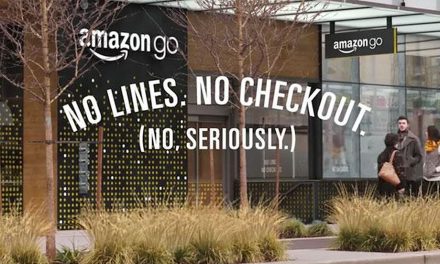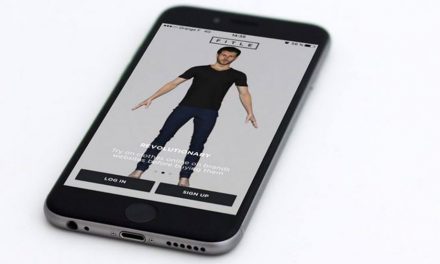With hotels entirely run by robots and offering new digital services such as a virtual concierge, the hospitality industry is embracing the digital age and implementing a range of new technologies, from the simple to the highly sophisticated – and the truly bizarre…
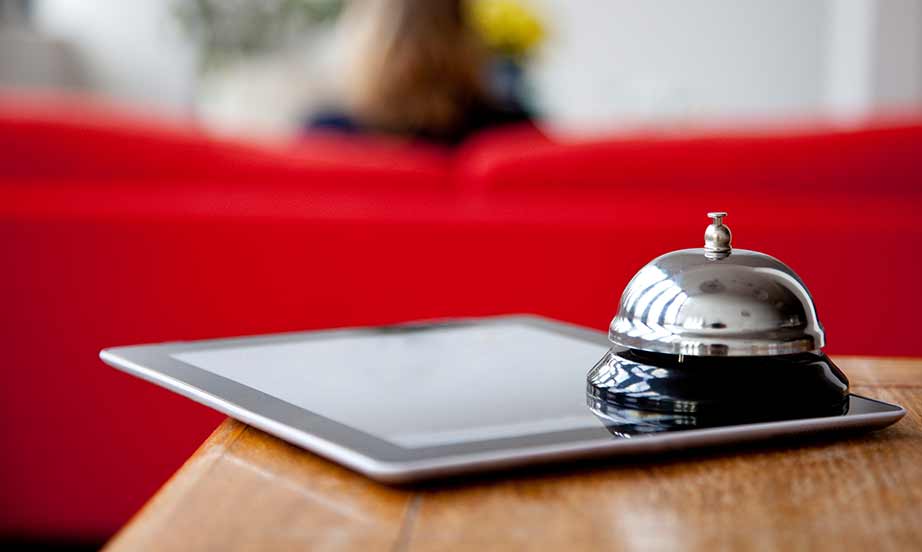
If you want to see the cutting edge of digital transformation in hospitality, go to Japan and China. With guests’ digital maturity and acceptance of robotics light years ahead of the West, some innovative new concepts are being developed.
Technology: giving a new lease of life to low-cost hotels. The Pengheng Space Capsules Hotel in Shenzhen is a prime example: since 2013, the bellboys, reception and restaurant staff have all come from robot factories, whilst room bookings and food orders are handled online via tablets available in all the public areas of the hotel.
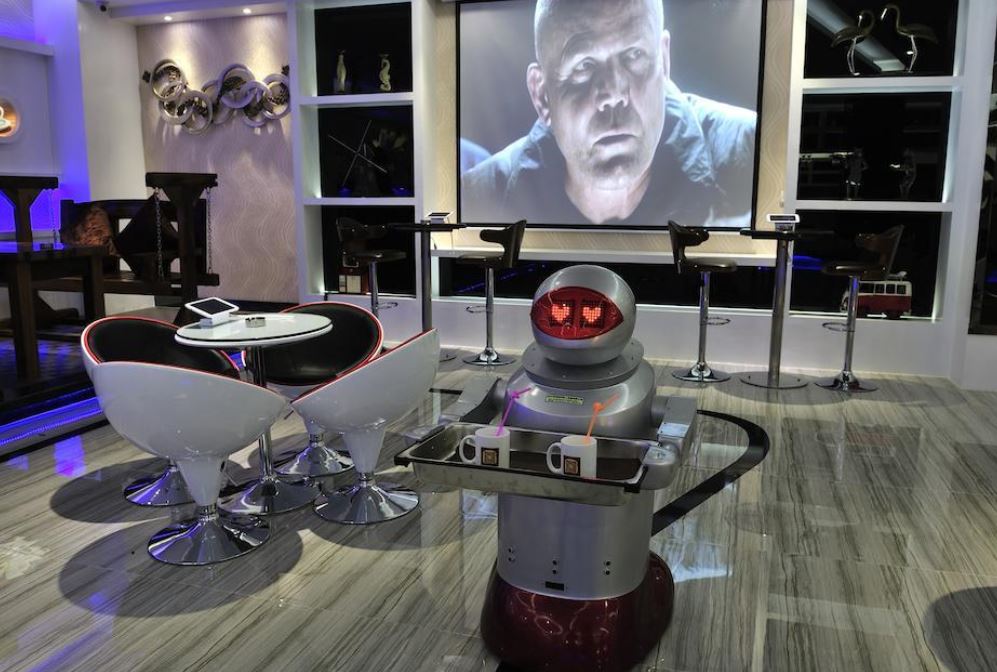
As for the 17 rooms, they’re capsules or pods of just a few square metres – a format that is already very popular in Japan. They all have a bed, TV and the necessary connectivity technology, whilst guests have to share bathrooms and toilets. With prices at around €13 a night per person, we advise you book well ahead.
In Japan, the very exclusive Henn na hotel near Nagasaki has been experimenting with a similar concept since 2015, using SoftBanks/Aaldebaran’s Nao robots (including a dinosaur at reception!) The cloakroom meanwhile is a giant robotic arm, which stores your luggage and other items, an autonomous trolley takes your bags up to the room and instead of a key, you enter the room via a facial recognition system. The prices – starting at 9,000 yen (around €70) – whilst somewhat higher than the low-cost capsules in Shenzhen, are still a good deal cheaper than the average Japanese hotel room.
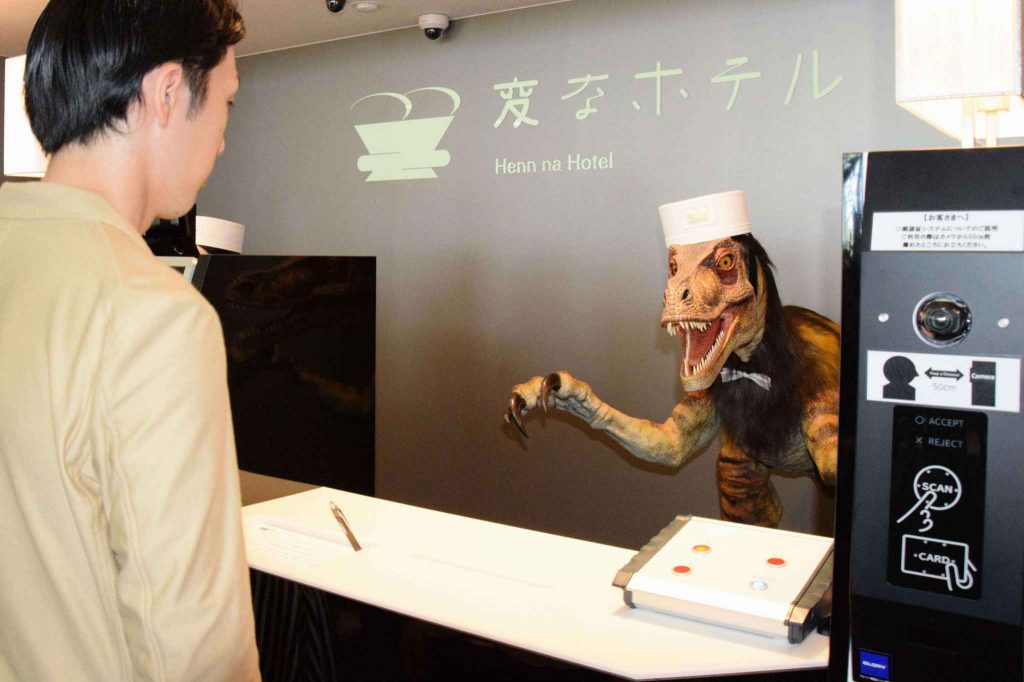
This may seem too futuristic or impersonal, and yet robot butlers and concierges featured among the top 5 emerging technologies for innovative hotels, according to a report by Lodging Technology.
THE VIRTUAL CONCIERGE: ANOTHER RISING TREND
Much easier to deploy for hotels, mobile concierge apps are becoming increasingly popular. By centralising à la carte services either prior to check-in or during the stay, they address guests’ increasingly high standards and match their digital habits in terms of ordering services. The app developed by hotel booking chain hotels.com, for example, locates guests via GPS and allows them to book transport (Uber), restaurants, leisure activities and takeaway meals nearby.
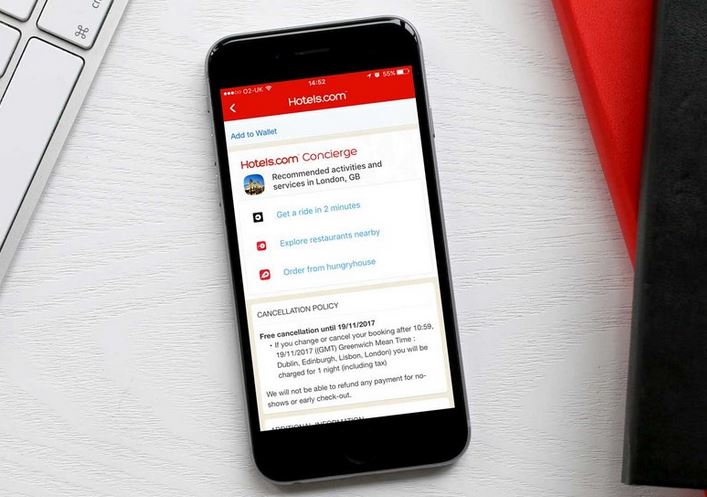
Digital also means hoteliers can record guests’ needs and preferences. This is what startup Egome has been doing since 2015, targeting business travellers or those used to luxury accommodation. Not just reserved for partner hotels, the app can be used by anyone and any hotel. Guests can thus enter their preferences such as room temperature, which newspaper they want delivered in the morning, book a taxi or wakeup call and enter any special dietary requirements, all of which is passed on to the hotel which can then use it as a way to personalise the guest’s stay and ensure customer loyalty.
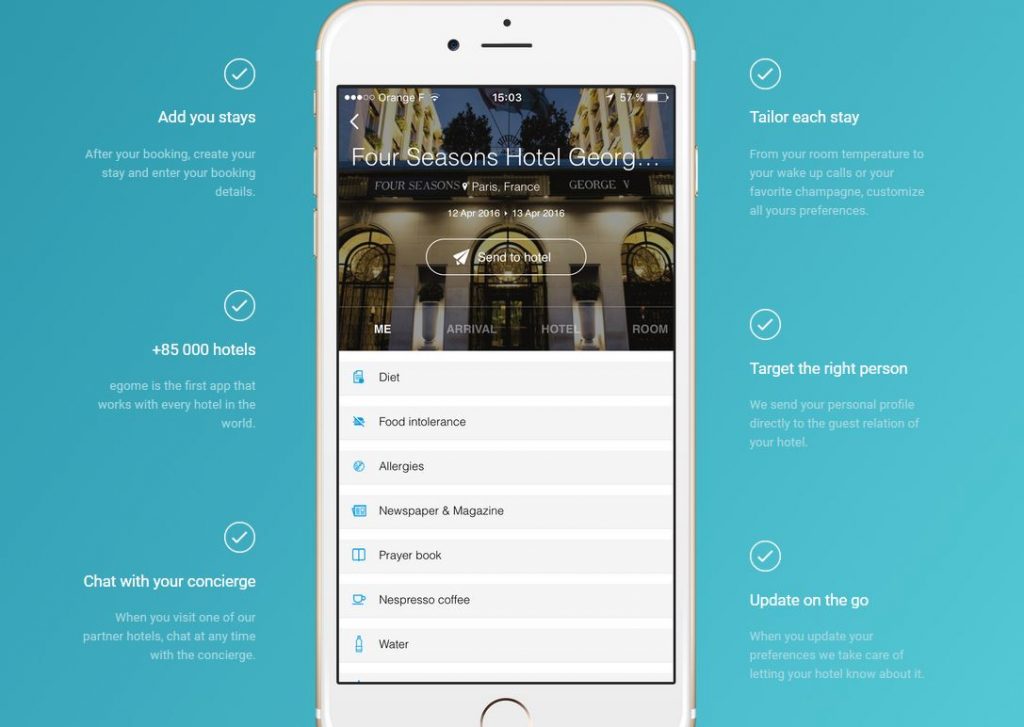
Sources: The Guardian, Hospitality Technology










